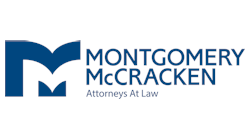
This article originally appeared in the March 2020 issue of Security Business magazine. When sharing, don’t forget to mention @SecBusinessMag!
I had the pleasure of serving as a Captain in the United States Air Force. I was a military lawyer, also known as a JAG (Judge Advocate General). I served overseas for three of my four years – enjoying the wonders of Japan and Iceland.
When I reveal to people that I was a JAG, I am often teased about the JAG television show and the movie A Few Good Men. Both depict military lawyers. Both are entertaining, although not entirely accurate in their portrayal of military law.
Those who have seen the movie A Few Good Men may recall the famous scene when Colonel Jessup, played by Jack Nicholson, screams “You can’t handle the truth!” as he testifies angrily under questioning from Navy JAG Lieutenant Daniel Kaffe, played by Tom Cruise. It is a great scene.
I was once at a party with a series of friends and other acquaintances. One of the people in our group – who I met for the first time that day – learned in the course of conversation that I was a JAG. After he had a few too many drinks, he spent the evening screaming in my ear, “You can’t handle the truth!” over and over. It was funny the first three times…
Are You Prepared for a Lawsuit?
My military experience was rewarding for various reasons – camaraderie, leadership, speaking opportunities, public service and, especially, training.
There is nothing the military does better than train its people – whether they are pilots, infantrymen, special forces, doctors, and, yes, even lawyers (like me and the fictional Lieutenant Kaffe); however, training and preparedness are not exclusive to the military. Private companies can do it too.
How about your company? Are you prepared? How about for a litigation? Can your documents and your practices and procedures withstand the scrutiny of a lawsuit? Consider two examples in my civilian legal practice:
In the first example, my client, a large and sophisticated company, was sued in a horrific security services case involving a home invasion and torture in Washington state. Among the claims made by the plaintiffs was that they were not trained properly on the use of the security system. As a matter of fact, my client did provide various training – including on a tablet device meant to document and record the customer’s participation on the date of the installation; however, the device did not register the customer’s participation – at least not in a recognizable and admissible form. While we won that litigation at trial, the absence of this evidence was among the hurdles that we had to climb. This made the defense more challenging and more expensive.
In the second example, also for a large and sophisticated corporate client, we were faced with a claim for damages resulting from a burglary. The customer made various factual assertions, including as what type of equipment was installed and where it was installed. The client’s records should have been clear on this point, but they were not because the technician did not complete the proper forms. We feared that this was widespread – something only an audit could reveal. In this instance, we still defended the case with success, but the error made it more difficult to defend and, again, more expensive.
Tabletop Exercises: Planning Ahead
These examples could have been avoided with advance planning, training and preparedness – something I have since deployed for these and other clients. Companies that conduct and commit resources to “tabletop exercises” are sharply less likely to face adverse consequences in litigation. Legal review of your customer contracts – how they are stored, how they are updated – can be critical to defending your company. A review of other records and procedures, even on a spot-check basis, can reveal holes that can be fixed before they result in any meaningful loss.
When we run tabletop exercises for our clients, we make the company better and mitigate its risk. To do this, we:
- Set goals and objectives for the exercise, such as improving the company’s contracting process or its record keeping or some other important area of the company’s operations.
- Identify the proper participants, such as operations personnel, executives and, of course, outside legal counsel.
- Devise a fact pattern, like a mock lawsuit by a customer or a vendor or a state regulatory agency.
- Promote candor, so personnel are free to raise issues and concerns they might not otherwise reveal in the normal course of operations.
- Ask tough questions, just like an opposing lawyer would do in litigation.
- Analyze the good and the bad in a written report and/or after-action meeting.
- Regularly conduct the tabletop exercises, usually monthly, quarterly and/or annually.
When our military trains, they do so to protect our freedom, our way of life, and to promote peace around the world. Yes, the military makes mistakes – through human error and otherwise; however, there is a constant drive to get better, to be ready. This drive is transferable to the civilian sector and to your company.
Take my recommendation and conduct regular tabletop exercises to prepare your company for litigation and to mitigate its impact on your operations and your bottom line. If you do not prepare for the worst and merely hope for the best, someday someone may be yelling in your ear that “You can’t handle the truth!”….and the truth is that you are unprepared.
Timothy J. Pastore, Esq., is a Partner in the New York office of Montgomery McCracken Walker & Rhoads LLP (www.mmwr.com), where he is Vice-Chair of the Litigation Department. Before entering private practice, Mr. Pastore was an officer and Judge Advocate General (JAG) in the U.S. Air Force and a Special Assistant U.S. Attorney with the U.S. Department of Justice. Reach him at (212) 551-7707 or by e-mail at [email protected].

Timothy J. Pastore, Esq.
Timothy J. Pastore Esq., is a Partner in the New York office of Montgomery McCracken Walker & Rhoads LLP (www.mmwr.com), where he is Vice-Chair of the Litigation Department. Before entering private practice, he was an officer and Judge Advocate General (JAG) in the U.S. Air Force and Attorney with the DOJ. [email protected] • (212) 551-7707
Meet Timothy J. Pastore
Timothy J. Pastore, Esq., is the newest columnist to join the Security Business magazine family. He is a Partner in the New York office of Montgomery McCracken Walker & Rhoads LLP (www.mmwr.com), where he is Vice-Chair of the Litigation Department.
Before entering private practice, Mr. Pastore was an officer and Judge Advocate General (JAG) in the U.S. Air Force and a Special Assistant U.S. Attorney with the U.S. Department of Justice. As a JAG, in particular, Mr. Pastore was legal counsel to the Air Force Security Forces and Air Force Office of Special Investigations.
Mr. Pastore has represented some of the largest companies in the security industry, including Protection One, Comcast, Charter, Cox, Altice, Mediacom, IASG, CMS and others. He regularly provides counsel on risk management, contracting, operations, licensing, sales practices, etc. Mr. Pastore also has served as lead counsel in courts throughout the country in dozens of litigation matters involving the security industry.
Among other examples, Mr. Pastore led the successful defense at trial of cable giant Comcast in a home invasion case in Seattle, Washington. The case received significant press attention and was heralded by CVN as a top-ten defense verdict.
Mr. Pastore is a graduate of Bucknell University and Boston College Law School.
Reach him at (212) 551-7707 or by e-mail at [email protected].


